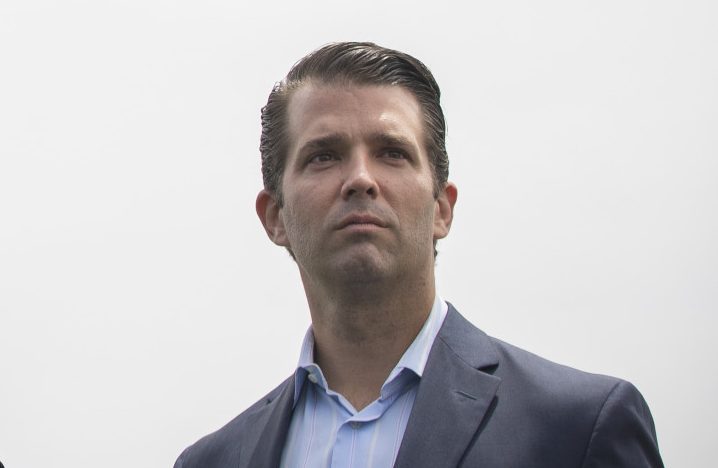In the latest case of media malpractice, NPR reporters wrote a story claiming that the guilty plea Michael Cohen entered this week showed that Donald Trump Jr. was lying during his testimony to the Senate.
“Trump Jr.’s 2017 Testimony Conflicts with Cohen’s Account of Russian Talks,” the headline of the story read.
Just hours later, the outlet was forced to issue a correction as its lead reporter on the story admitted he didn’t understand part of the transcript he was quoting.
Cohen said in the September 2017 guilty plea that negotiations for a potential Trump Tower in Moscow continued through mid-2016. Philip Ewing and Tim Mak claimed that directly conflicted with Trump Jr.’s testimony to the Senate Judiciary Committee (pdf) that negotiations had ended by 2016.
After the committee asked President Donald Trump’s son to clarify when the talks ended, he said: “Certainly not ’16. There was never a definitive end to it. It just died of deal fatigue.”
But the reporters apparently failed to read other parts of the transcript in which it’s made clear Trump Jr. was discussing another possible Trump Tower deal. One of the deals was worked through the Agalarov family while the other was attempted through Cohen.
Trump Jr. said the deal with the Agalarovs died before 2016, near the end of 2014 or a little after. The Cohen deal continued until it died in 2016, said Trump Jr.—agreeing with Cohen’s statements.

‘Misunderstood’
Ewing claimed he misunderstood the transcript but refused to apologize for the error.
“I misunderstood the material in our transcript story today and it has been updated with a correction. Thank you to everyone who pointed out the issues. I made a mistake and the responsibility was entirely mine,” he wrote on Twitter. Mak did not personally address the error.
The story is still up on NPR’s website with a revised headline and amended with a lengthy editor’s note.
“An earlier version of this report mischaracterized an answer Donald Trump Jr. gave to Senate investigators in 2017 about the prospective projects his family was negotiating with people in Moscow,” part of the note read.
The outlet also did not apologize for the blatant error.
Media Bias
Like many political reporters, Ewing’s Twitter timeline is full of stories that rely on anonymous sources, some of which have proven untrue or misleading and others have never been proven. The overwhelming majority of the stories are against Trump and many promote theories connected to the dossier funded by Trump’s opponent Hillary Clinton.
The media has made dozens of major mistakes in reporting on Trump as more and more reporters show a clear bias against the president, his family, and the administration. Many outlets famously had put his chances to win the presidency at low to impossible, and the openly biased Huffington Post placed all stories about Trump during the election in its entertainment section.
After Trump shocked the country by winning the presidential election in 2016, the New York Times was among those saying they would cover Trump differently than any president before.
Media reporter Jim Rutenberg wrote that some reporters believed that Trump was “a demagogue playing to the nation’s worst racist and nationalistic tendencies.”
Rutenberg’s column was praised by the paper’s executive editor. “I think that everybody went in a little bit shell-shocked in the beginning, about how you cover a guy who makes news constantly,” Dean Baquet said.
According to one study of network television coverage, Trump has received 92 percent negative coverage from the media.

